
Since its humble start in 2004, Facebook has grown to become the biggest global social network. With almost 3 billion monthly active users worldwide, it’s clear that Facebook is no longer just a networking app for American coeds. Now, it’s an essential tool for both individuals and businesses.
Outranked only by Google and YouTube, Facebook is one of the most frequently visited websites on the planet. Understandably, customers want to connect with brands – both familiar and brand new – on this platform.
In other words, your small business needs to be active on Facebook. But how do you really know whether you’re making the right moves? The following Dos and Don’ts can help you sharpen your strategy and avoid some unnecessary mistakes so that your small business can thrive.
Let’s start with the Dos:
Do Fill Out Every Field Possible On Your Facebook Page
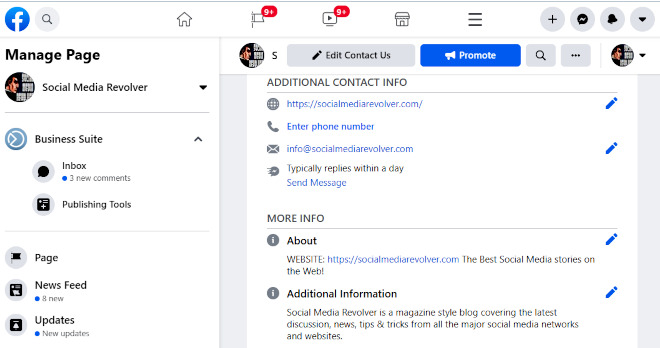
When you create a Facebook page for your business, you might feel a little overwhelmed. There’s a lot of information you can enter from the start.
At first, it might seem best to skip this step and get down to business. But you should take the time to fill out every possible field first. When you complete the “about” sections and give every piece of possible information your customers might need, you’ll make their decision-making process a whole lot easier.
Essentially, leaving any section blank can do a disservice to your small business. You can, of course, change the information you publish at any time. But providing as much info as possible can help build brand trust and make your business that much more searchable.
Don’t forget to add images! Your header image and profile photo should be easily recognizable and aligned with your branding. You can even change your header images to coordinate with different campaigns throughout the year.
Interact With Your Facebook Followers Regularly
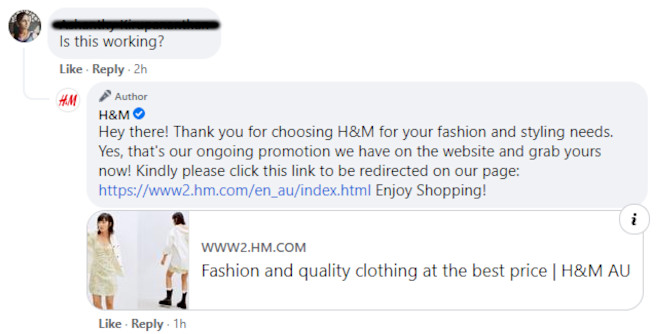
Facebook provides an easy way for brands to connect with their customers, and vice versa. If you waste this opportunity, you may find it more difficult to create a personal bond with your followers.
Engaging with people who comment on your posts or send direct messages to your inbox can help you build relationships and express your brand message in a new way. Adding prompts to your posts can encourage engagement from your followers – and responding to their engagement can further cement the positive association they have with your brand.
In fact, according to Databox research, 54% of respondents said engagement is the number one success metric for organic Facebook.
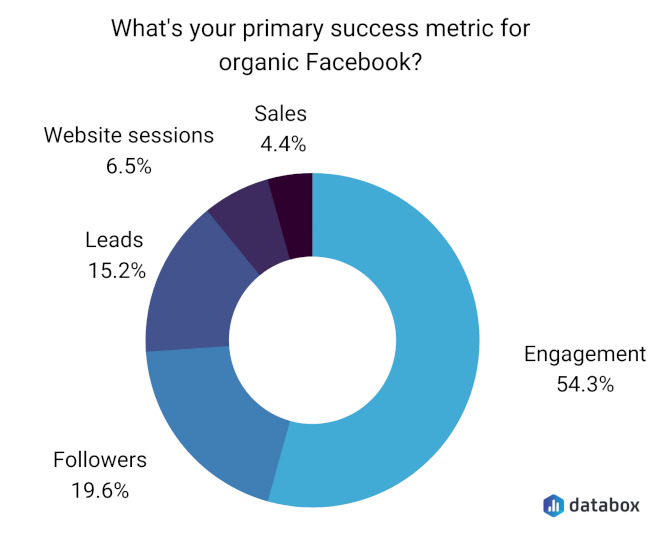
Of course, you’ll also want to answer questions and address concerns right away. Your social media management should act as an extension of your customer service and direct customers to the best channels for their inquiries. Don’t ignore customer posts or comments, whether they contain a compliment or a complaint.
Finally, keep your brand voice consistent during these interactions. This provides you with the chance to show more about your brand. If your voice resonates with customers in a clear and distinctive way, they’ll want to keep interacting with you on multiple platforms over time.
Post Consistently On Your Facebook Feeds
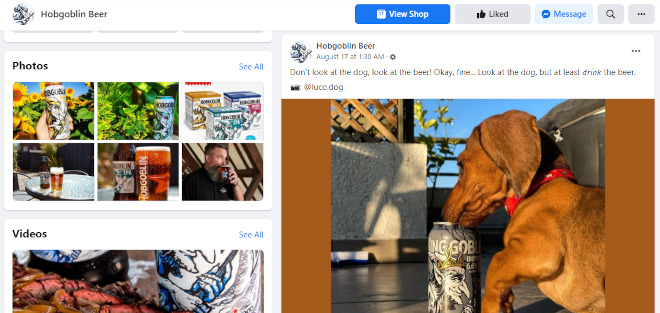
But not too much. Social media platforms like to reward accounts that post valuable content on a consistent basis. When you publish content that users like, they’ll interact with it – and they’ll usually see more of it in their feeds as a result, due to the algorithm.
When you post consistently, you’ll have a better chance of appearing in those Facebook feeds. That’s a good reason to create and follow a content calendar. Rather than post whenever you remember, you can set a schedule and plan out your posts accordingly.
A word of caution: don’t make the mistake of posting as frequently as possible. Although consistency is key, that doesn’t mean you should post multiple times a day. You’ll quickly annoy your followers if you do. Aim for once a day or once every other day on Facebook. That’s enough to ensure you stay relevant without driving customers away.
…and now some importnat Don’ts:
Don’t Run Your Facebook Ads Without A Strategy
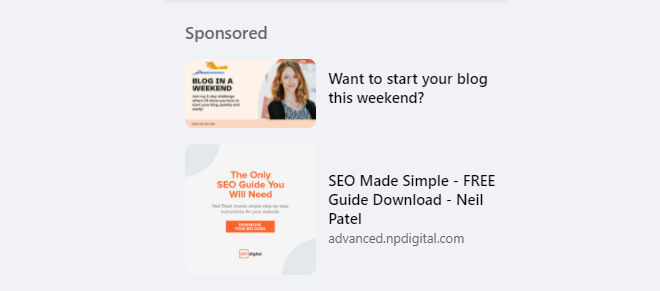
According to Neil Patel, approximately 62% of small businesses feel like their Facebook ads are failing. But the problem isn’t with Facebook ads as a concept; it’s when business owners fail to understand how to best use these ads that the tactic fails.
It’s okay to boost existing posts from time to time or run a test ad to see what resonates with your audience. But if you’re regularly creating ads and sponsoring posts with no rhyme or reason, you’re probably not going to see a real payoff.
You need to clearly define your goals, figure out which metrics matter, and create paid promotion opportunities that will support your aims. In other words, you need to devise a strategy for Facebook advertisements.
While social media advertising is relatively inexpensive, you won’t be able to compete if you lack a strategic foundation. The money you spend on ads will add up over time – and if you aren’t seeing any significant returns, you’ll basically be handing over a wad of cash to Mark Zuckerberg with no strings attached.
To avoid that scenario, you’ll want to incorporate Facebook ads and other social media ads as part of your larger marketing strategy. Once you have a clear idea of who your audience is and what kind of content they like best, you’ll be able to run more effective ads that will help you reach your goals.
Don’t Take Facebook Reviews Too Personally
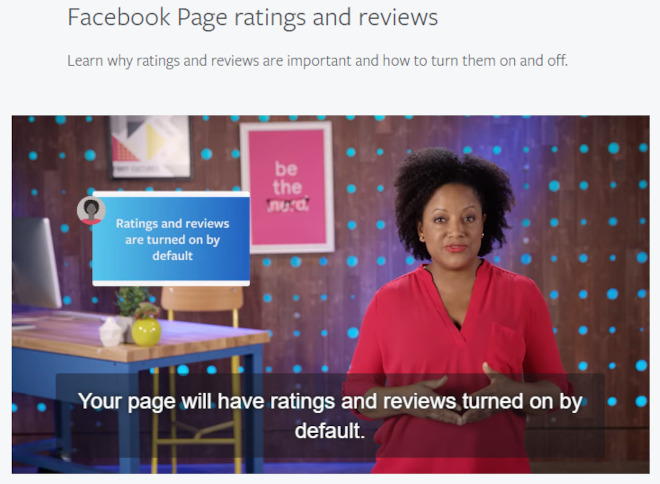
Facebook can be a great way to get the word out about your business. Not only can it make your brand easier to find online, but the platform allows your customers to share their thoughts and support you by leaving an online review.
Online review management should be an essential part of your marketing strategy. You’ll need to know how to generate and manage those reviews to protect your reputation and increase website traffic to your site.
You should respond to every review promptly and with compassion. Even if someone leaves a less-than-glowing review, thank them for their time, ensure they feel heard, and make every effort to right any wrongs that exist.
Although fake reviews do happen in rare cases (and should be reported and removed), you shouldn’t attempt to delete honest reviews. You should never respond to a review in anger, either. It’s best to post a reply within 24 to 48 hours, but that doesn’t mean you should act rashly.
Remember that this is ultimately a chance to highlight your customer service skills. Whether the reviewer is a troll or has legitimate concerns, the way you respond will probably matter more to prospective customers than what the review itself actually says.
Take the emotion out whenever possible and take the feedback to heart. Trying to have the last word is never a good look. Although the customer may not always be right, you’ll want to follow that adage with your review management. If you view these reviews as opportunities rather than as criticisms, you’ll naturally perform damage control and show customers what your brand is really about.
You can learn more about Facebook Ratings and Reviews here.
Don Not Get Overly Promotional On Facebook
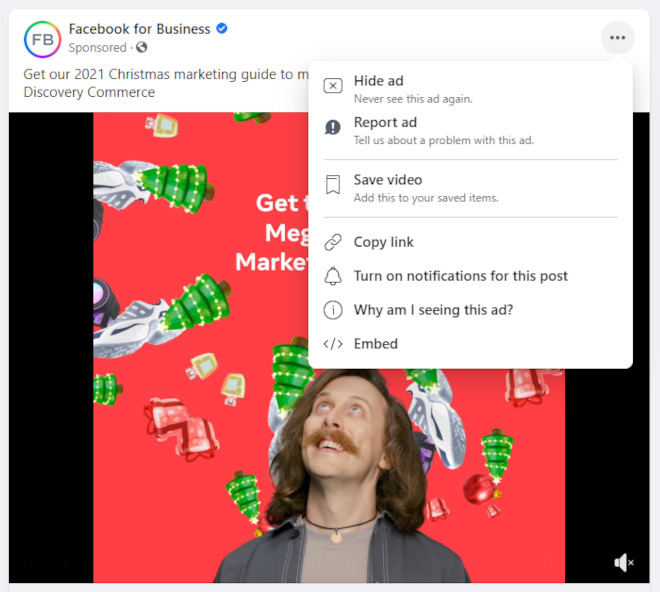
It’s tempting to plug your products or services on Facebook – and you can do this on occasion.
However, you shouldn’t get carried away with promotional posts. Generally speaking, you should follow the “70/30 rule” with most social media posts.
The 70/30 rule refers to sharing content from other sources (or valuable content you’ve created yourself with no real promotional bent) around 70% of the time. With the other 30% of the time, you can promote your products, your services, and your brand.
If you share too much promotional content, your audience will most likely tune out. Followers don’t want to see ads in their feeds all the time. Instead, they want to support brands that provide them with information they can actually use on a regular basis.
It might sound counterintuitive, as it stands to reason that posting promotional content would drive more traffic to your site and result in more conversions. But in our digital world, consumers are being constantly bombarded with advertisements.
To stand out, you’ll want to build brand trust and customer loyalty. That’s best accomplished through the sharing of educational or entertaining content that’s related to your business or industry but that doesn’t specifically function as an ad for what you offer.
Facebook is an immensely powerful tool for small business owners. But it’s not always easy to know what to do (or not do!) to see the best results. By keeping these dos and don’ts in mind, you’ll have access to the framework you need to connect with your customers more effectively in our tech-driven reality.
[Recommended reading: 5 Steps To Creating An Engaging Facebook Business Page]
[Images – Main Image by Jerzy Górecki from Pixabay; Facebook infographic by Databox; other images, graphics or videos are from their respective websites and/or social platforms]

Jeff Shipman is the Director of Marketing Innovation at Semify, a white label marketing agency based in Rochester, New York. At Semify, we provide quality SEO and PPC fulfillment solutions at-cost to help digital marketing agency owners achieve their dreams. Before moving to Western New York, Jeff earned a BA in History and an MBA at St. Bonaventure University.
